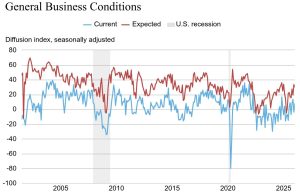If there is an American creed, it’s expressed by the first words of the Declaration of Independence: “We hold these truths to be self-evident, that all men are created equal, that they are endowed by their Creator with certain unalienable Rights.” Note that the founders wrote that all men are created equal, not just certain […]
Already an Subcriber? Log in
Get Instant Access to This Article
Become a Central New York Business Journal subscriber and get immediate access to all of our subscriber-only content and much more.
- Critical Central New York business news and analysis updated daily.
- Immediate access to all subscriber-only content on our website.
- Get a year's worth of the Print Edition of The Central New York Business Journal.
- Special Feature Publications such as the Book of Lists and Revitalize Greater Binghamton, Mohawk Valley, and Syracuse Magazines
Click here to purchase a paywall bypass link for this article.
If there is an American creed, it’s expressed by the first words of the Declaration of Independence: “We hold these truths to be self-evident, that all men are created equal, that they are endowed by their Creator with certain unalienable Rights.”
Note that the founders wrote that all men are created equal, not just certain men. The rights they were espousing were human rights, given to us all. Governments are instituted, they said, to secure these rights, which all people should enjoy.
We count on our laws and the Constitution, especially its Bill of Rights, to protect rights for Americans. But if we truly believe human rights are unalienable, we should support them for people everywhere. And we have: For 50 years, promotion of human rights and democracy has been a central feature of U.S. foreign policy. We have used diplomacy, foreign aid, and multinational partnerships to advance human rights.
Unfortunately, there are signs that we are moving away from that role. The Trump administration has cut funding for programs that promote rights and democracy. Its crackdown on illegal immigration has come with disregard for the rights of migrants and newcomers, [I believe]. Trump has praised dictators like Russia’s Vladimir Putin and expressed admiration for strongman rulers like Hungary’s Victor Orban. It’s concerning that, in a recent survey of more than 500 political scientists, the majority said the U.S. is moving away from being a liberal democracy and toward embracing authoritarianism.
The backsliding is coming at a bad time, as the rise of autocratic governments and the spread of armed conflict threatens human rights in much of the world. In the past year, a report from Amnesty International says, many governments “sought to evade accountability, entrench their power and instill fear” by banning media outlets, disbanding opposition groups and nongovernmental organizations, and criminalizing dissent.
It’s true that we Americans haven’t always lived up to our own ideals about human rights. Many of the signers of the Declaration of Independence and drafters of the Constitution were slave owners. It took a bloody civil war to end slavery, and it took generations of activism to gain rights for minorities and women. Much of American history has been a struggle to extend the promise of human rights to all of us.
Support for human rights became more international after World War II, partly from the realization that the world should have done more to prevent the Holocaust. The United Nations Universal Declaration of Human Rights, adopted in 1948, updated and expanded the idealistic language of America’s founders. “All human beings are born free and equal in dignity and rights,” it said. “They are endowed with reason and conscience and should act towards one another in a spirit of brotherhood.” It called on nations to respect “the right to life, liberty and security of person.” The declaration was nonbinding but influenced international laws and agreements.
U.S. history is replete with times when we failed to reach our own ideals about human rights. Even after the Civil War, segregation and racist laws and policies prevailed in much of the country. Our country denied basic rights to Native Americans, Japanese Americans during World War II, and other groups. In foreign policy, we often looked the other way when our allies committed abuses. During the Cold War, we supported dictators if they were anti-Communist.
Naturally, tensions will sometimes arise between our values and our national interest. When that happens, a realistic assessment of our national interest will prevail. But if we truly believe the words of the Declaration of Independence, we should promote human rights to the extent that we can. Our values have made America a leader and a force for good in the world. The world will be worse off if we neglect them, and so will we.
Lee Hamilton, 94, is a senior advisor for the Indiana University (IU) Center on Representative Government, distinguished scholar at the IU Hamilton Lugar School of Global and International Studies, and professor of practice at the IU O’Neill School of Public and Environmental Affairs. Hamilton, a Democrat, was a member of the U.S. House of Representatives for 34 years (1965-1999), representing a district in south-central Indiana.
Lee Hamilton, 94, is a senior advisor for the Indiana University (IU) Center on Representative Government, distinguished scholar at the IU Hamilton Lugar School of Global and International Studies, and professor of practice at the IU O’Neill School of Public and Environmental Affairs. Hamilton, a Democrat, was a member of the U.S. House of Representatives for 34 years (1965-1999), representing a district in south-central Indiana.



